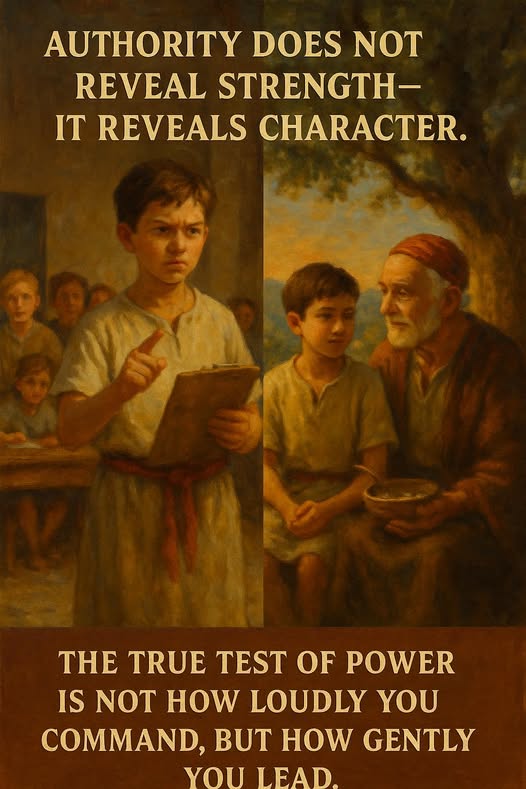
(How We Treat Others When Given Control)
——
It started on a rainy Thursday morning when Emil was chosen as the classroom monitor for the week. He was proud. It was the first time his teacher, Mrs. Fallon, had entrusted him with the role: keeping the class quiet when she stepped out, reporting any mischief, and making sure supplies were in order.
At first, Emil did exactly what he thought a leader should do. He walked with his clipboard, asked others to quiet down, and reminded them of the rules. But by the third day, the power started to feel… different.
“Hey,” he told Jonah, who had forgotten to clean his desk, “I’ll have to report you.”
“But I forgot only once,” Jonah pleaded.
“That’s not my problem,” Emil replied, feeling important.
Later that afternoon, he scolded a younger student for not lining up properly. “You think the rules don’t apply to you?” Emil said loudly enough for others to hear. Some kids began to laugh—not at Emil, but at the one being scolded.
Emil liked how it felt.
That evening, beneath the old fig tree, he told his grandfather about his new role.
“I’m the monitor,” Emil said, puffing his chest slightly. “And honestly, some kids need to be put in their place.”
His grandfather looked at him quietly, stirring a pot of lentil soup with deliberate calm.
“Let me tell you a story,” he said. “There was once a shepherd boy who was asked to guard a hundred sheep. It was an honor, and he took it seriously. But as the days passed, he began to believe he owned the sheep. He yelled at them for straying too far, pushed the weak ones aside, and demanded that even the smallest lambs follow his pace. He forgot that his role was to guide—not to dominate.”
Emil frowned. “But rules are rules, aren’t they?”
“Of course,” his grandfather nodded. “But when we are given authority—whether over sheep, people, or even a classroom—it’s not a test of power. It’s a test of mercy, fairness, and restraint. Authority reveals what kind of heart we have.”
He paused, then added gently, “When the shepherd boy grew older, no animal followed his voice. Not because he wasn’t loud enough—but because he had lost their trust.”
Emil sat quietly, poking at the stew. The rain had stopped. Somewhere, a bird called.
“Tomorrow,” his grandfather continued, “try leading with humility. Correct, but do not humiliate. Guide, but do not grab. True authority uplifts—it doesn’t press down.”
The next morning, Emil approached Jonah with a softer voice. “Hey, just a reminder to clean your desk today. I forgot once too.”
Jonah smiled. “Thanks, Emil.”
And for the first time that week, Emil didn’t feel powerful—he felt responsible.

